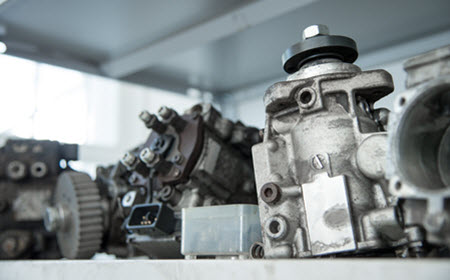A High-Pressure Fuel Pump (HPFP) failure is an issue that has plagued BMW engines in recent years. The HPFP is a crucial component of modern BMW engines, responsible for delivering fuel at high pressure to the engine’s injectors. However, many BMW drivers have reported experiencing issues related to the HPFP, ranging from misfires to complete engine failure.
This problem has led to increased scrutiny of BMW’s fuel system and concerns among BMW drivers about the reliability and performance of their engines. As a BMW car owner, It is essential to understand the causes and symptoms of HPFP failure to prevent and address it promptly. This article will provide a comprehensive overview of BMW’s HPFP failure, including its causes and solutions.
Causes of BMW HPFP Failure
BMW HPFP failure can be caused by various factors, including:
- Metal Debris: The HPFP relies on a camshaft to generate the high pressure needed for fuel delivery. However, over time, metal debris from the camshaft can contaminate the internals of the pump, causing damage and eventual failure. The metal debris can cause the pump’s components to wear and break, leading to a loss of pressure and a reduction in fuel delivery.
- Low-Quality Fuel: Poor quality fuel or fuel that contains high levels of ethanol or other additives can cause damage to the internal part of the fuel pump, leading to failure. Ethanol can damage the seals and other components in the fuel pump and eventually cause a leak, decreased fuel flow, and pump failure. Similarly, additives in low-quality fuel can also lead to pump failure by clogging the fuel system or corroding the pump’s internal components.
- Electrical Issues: Electrical issues, such as damaged wiring or faulty sensors, can cause the pump to consume more power than it should, leading to increased heat generation and eventual pump failure.
- High Mileage: Like any mechanical component, high mileage can lead to wear and tear, eventually leading to pump failure. The HPFP’s internal components, such as the camshaft and seals, can wear out over time.
- Manufacturing Defects: In some cases, manufacturing defects can lead to pump failure. BMW has issued several recalls due to defects in their fuel pump systems, leading to pump failure and other engine-related issues.
Solutions to BMW HPFP Failure
There are several solutions to BMW’s HPFP failure, depending on the cause and extent of the damage. Some of the most common solutions include:
- Replacement of the HPFP: If the pump is severely damaged, replacement is often necessary. A qualified mechanic should replace the HPFP using genuine BMW parts to ensure proper function and longevity.
- Regular Maintenance: Regular maintenance, such as fuel filter changes and using high-quality fuel, can help prevent HPFP failure caused by debris buildup or low-quality fuel. You should follow BMW’s recommended maintenance schedule to keep the fuel system clean and functioning correctly.
- Use of Fuel System Cleaners: Using a fuel system cleaner regularly can help remove debris buildup within the fuel system, preventing HPFP failure caused by clogging.
- Electrical System Inspection and Repair: If the HPFP failure is caused by electrical issues, such as damaged wiring or faulty sensors, these should be addressed promptly to prevent pump overheating and failure.
Get Help from the Professionals at Hagan’s Motor Pool
Hagan’s Motor Pool is an auto repair shop in Rochester, NH, that  offers a range of automotive services, including diagnostic and repair services for BMW vehicles experiencing HPFP failure. At Hagan’s Motor Pool, our team of experienced and trained mechanics can diagnose the cause of the failure and provide the necessary repairs using genuine BMW parts to ensure proper function and longevity. In addition to serving Rochester residents, we also serve drivers from nearby areas such as Alton, Barrington, Berwick, and Dover, NH.
offers a range of automotive services, including diagnostic and repair services for BMW vehicles experiencing HPFP failure. At Hagan’s Motor Pool, our team of experienced and trained mechanics can diagnose the cause of the failure and provide the necessary repairs using genuine BMW parts to ensure proper function and longevity. In addition to serving Rochester residents, we also serve drivers from nearby areas such as Alton, Barrington, Berwick, and Dover, NH.
If you are experiencing any symptoms of HPFP failure in your BMW, bring it to us for inspection and repair to prevent further damage to the engine and fuel system. We offer a convenient online appointment scheduling system, making it easy for drivers to schedule services at their preferred time and date. Contact us now to schedule an appointment and get back on the road safely.
* BMW 340i Car image credit goes to: stonena7.

